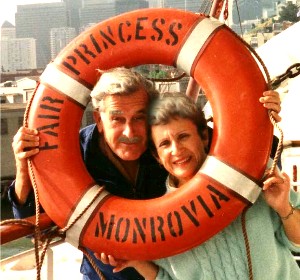
| Cruising Safety Tips For Smooth-Sailing Seniors |
 |
 Cruising is statistically much safer than flying and driving. However, cruise ship problems, such as health and cleanliness issues, always make the news. Seniors cruise because they’re very convenient. Once aboard, everything is just a few steps away: entertainment, pools, spas, sunning, scenery and dining. When visiting ports, there are excursions, shopping, and other diversions. A cruise vacation can be even more enjoyable when you’re constantly aware of safety. These five key tips help make your sailings a pleasant experience: Bring All Daily Meds x 2: Check with your physician before sailing and stock up for double the number of days of the cruise. This allows for unexpected delays that could result in running out of meds. In case of emergency illness or injury aboard, carry proof of insurance, Medicare, and other applicable IDs. If you take special med equipment, be sure it's in good working condition. Once Aboard: Getting to your cabin involves ramps and metal decks. Wear comfy clothes and rubber-soled shoes whenever walking the decks. If with a cane or wheelchair, be sure your companion can help in your cabin and everywhere aboard and ashore. If not, hire onboard help. Lifeboat Drill: There's usually a drill once all passengers are aboard and the voyage begins. Memorize your cabin location and how to get to it from stairways, elevators and passageways. The info is posted inside each cabin, along with instructions for lifeboat drill and location of your assigned on-deck lifeboat station. When The Alarm Is Not a Drill: Be ready to leave your cabin quickly with life jacket on. Keep your wallet, jewelry, keys, and other valuables ready to take at a moment's notice. Several times throughout your cruise, practice going to your lifeboat station from other areas of the ship. Maintain Health and Awareness: There are continuous buffets and other dining from early morning to midnight. Enjoy the food, but overeating and too many rich foods while on a rocking ocean can result in seasickness. Always wash hands with soap following meals, swims, spas, toilet visits and after touching the ship's metal and wood surfaces. When the ship docks in foreign ports, we're careful of water and food offered, especially from street vendors. We take bottled water ashore with us, and are sure everything we eat has been thoroughly cooked. Safety Ashore: always be with at least one companion, and confine sightseeing to daylight in well-lighted areas. Leave major cash and jewelry locked in the cabin safe, and carry ashore only money you expect to spend that day. Keep SmartPhones, cameras, purses, and wallets close, and always stay alert for pickpockets and other unexpected dangers. |